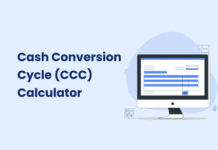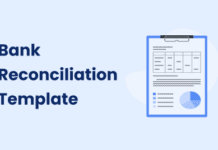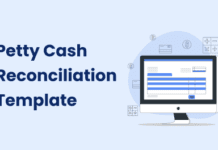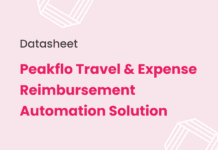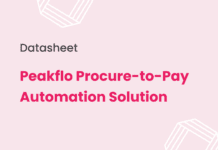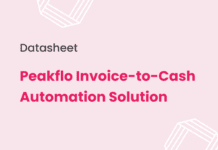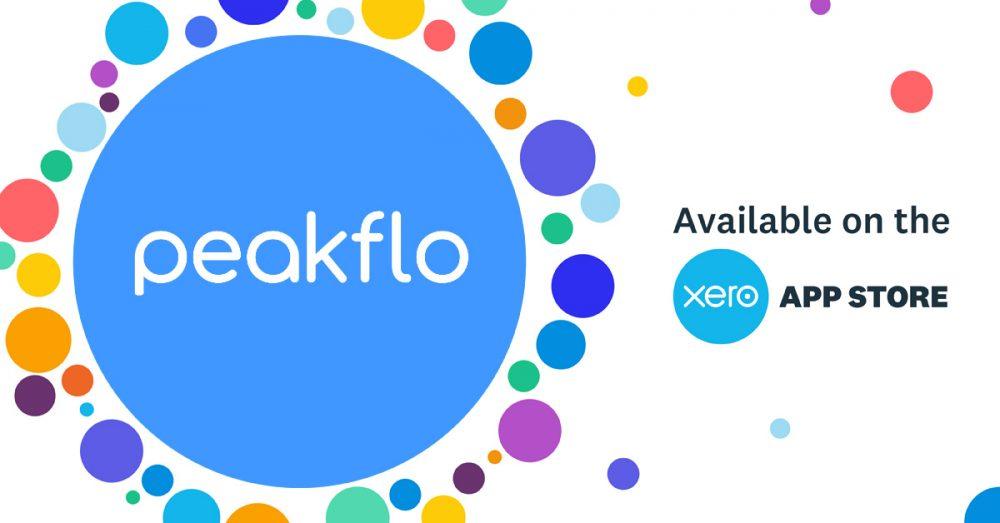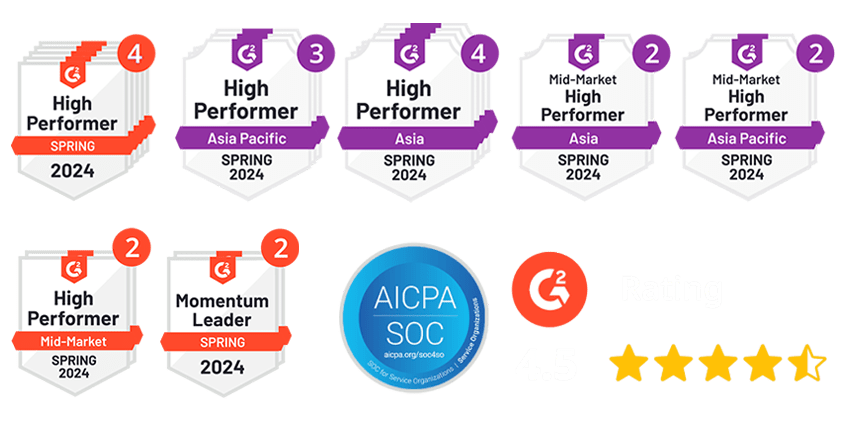Artificial intelligence has reached a turning point for business operations. Gen AI agents represent a new category of AI systems that can create content, solve complex problems, and interact with users in ways that feel remarkably natural. These generative agents operate differently from conventional AI systems—they can activate themselves to pursue specific goals, adapt to environmental changes, and recognize when they’ve achieved their objectives.
The business landscape has seen these AI agents evolve from basic task automation tools into sophisticated systems capable of creative problem-solving and personalized interaction. Companies across industries are now using autonomous AI solutions to improve decision-making processes and provide intelligent support around the clock. What makes generative agents particularly valuable is their combination of creativity, adaptability, autonomy, and context awareness.
For business leaders, understanding how generative AI works and implementing these tools effectively could determine your competitive position in the coming years. Experts predict that these technologies may reach full maturity within just five years.
This guide will help you understand why gen AI agents matter for your business, how to implement them effectively, and the practical applications already changing how companies operate across different industries.
Why Business Leaders Should Care About Generative AI Agents
Image Source: LinkedIn
Business leaders face a significant shift in artificial intelligence capabilities. Gen AI agents have evolved beyond simple tools into autonomous partners that can drive substantial business value.
The shift from static AI to autonomous agents
Traditional AI systems work within strict boundaries, following predefined rules and requiring explicit instructions for every task. Gen AI agents operate differently. These intelligent software agents function as autonomous, decision-making entities that analyze data, plan tasks, take action, and continuously adapt—often in real time.
The key difference lies in their initiative. Generative AI agents actively engage with their environment, learning and adapting as they work. Unlike static tools that wait for commands, they observe their surroundings, use large language models for planning, and access connected systems to accomplish specific goals. This marks a progression from knowledge-based tools that simply answer questions to systems that can execute complex, multi-step workflows across digital environments.
How Gen AI agents solve modern business problems
Gen AI agents excel at addressing business challenges that were previously difficult to automate. They handle complex use cases with highly variable inputs and outputs—situations that traditional automation couldn’t manage efficiently.
The results are measurable across industries:
- A consumer packaged goods company using intelligent agents to create blog posts reduced costs by 95% while improving speed by 50x.
- A global bank implementing AI virtual agents for customer interfaces cut costs by 10x.
- A biopharma company using AI agents for lead generation reduced cycle time by 25% and gained 35% in time efficiency for drafting clinical reports.
The rise of agentic AI in enterprise settings
Companies are recognizing the potential of generative agents quickly. The market for AI agents is expected to grow at a 45% CAGR over the next five years, with market value projected to jump from $5.10 billion in 2024 to over $47.00 billion by 2030. Gartner predicts that by 2028, 33% of enterprise software applications will incorporate these systems.
Adoption is happening across diverse sectors. IT departments modernizing legacy technologies have increased productivity by up to 40%. Within the same timeframe, approximately 15% of daily work decisions will be handled automatically by agentic AI. These statistics show why business leaders can’t afford to ignore this technology—companies that adopt gen AI agents now will likely secure significant competitive advantages as these systems become standard business tools.
How to Implement Gen AI Agents in Your Organization
Image Source: Azilen Technologies
Implementing gen AI agents successfully requires a systematic approach. Here’s how to integrate these tools into your organization effectively without disrupting existing operations.
1. Identifying high-impact use cases
Start by evaluating potential AI agent applications using two key criteria: strategic value and automation readiness. The best candidates for gen AI implementation share three common characteristics: clear, autonomous goals that agents can pursue independently, access to clean, structured data, and repeatable decision-making logic.
Focus initially on high-value scenarios that are ready for automation. Examples include variance analysis, routine employee support tasks, and credential validation processes. These use cases typically deliver quick wins while building organizational confidence in AI capabilities.
2. Choosing the right models and tools
Selecting appropriate Gen AI models involves five critical decisions that will determine your implementation success:
1. Evaluate governance requirements – Regulated industries like healthcare or finance need models that meet strict compliance standards.
2. Analyze use case complexity – Match model capabilities to your specific requirements and expected output quality.
3. Consider performance factors – Balance latency, cost, and customization needs based on your operational requirements.
4. Assess data availability – Determine if you have sufficient quality data for model customization.
5. Review internal capabilities – Ensure your team has the necessary skills and computational resources for successful deployment.
3. Integrating with existing workflows
What’s the best way to avoid implementation failures? Start small rather than attempting a complete system overhaul.
Select one or two specific micro-tasks where AI can deliver immediate, measurable impact. This phased approach allows you to test accuracy, gather user feedback, and refine processes before expanding to larger applications.
Make sure your AI solutions integrate seamlessly with your current infrastructure. The goal is enhancement, not replacement—your gen AI agents should work within existing systems without requiring major redevelopment.
4. Ensuring data quality and security
Data quality directly affects your Gen AI agent’s performance and reliability. Focus on four essential elements: relevance, accuracy, consistency, and fairness.
Security requires a multi-layered approach. Implement strong access controls and encryption for all agent interactions. Classify and label sensitive information to guide AI behavior appropriately.
Regular monitoring through systematic audits helps identify potential issues such as unauthorized data access or policy violations. This ongoing oversight ensures compliance with regulations like GDPR and CCPA while maintaining system integrity.
Real-World Applications Across Industries
Gen AI agents are delivering measurable business results through targeted applications that solve specific industry challenges. These implementations demonstrate how autonomous AI systems create value across different sectors.
1. Customer support automation
Customer service operations have seen dramatic improvements with gen AI agents handling routine inquiries automatically. Agents reduced wait times from hours to just 33 seconds while boosting customer engagement by 40%. These intelligent systems go beyond answering common questions—they interpret customer sentiment proactively, enabling faster issue resolution and better customer retention.
2. Sales and marketing personalization
Retail companies using AI-powered personalization report 10% to 25% increases in return on ad spend. Gen AI agents cut content creation time from weeks to hours, allowing marketing teams to produce variations of emails, graphics, and advertisements at scale. These systems analyze customer behavior patterns to deliver personalized experiences across multiple channels, testing different variations to find the most effective engagement strategies.
3. Internal knowledge management
Gen AI agents help organizations manage information more effectively by retrieving relevant data from large repositories quickly. About 64% of companies report that effective knowledge management improves employee satisfaction. These AI systems also support decision-making by analyzing trends and providing data-driven recommendations.
4. Healthcare and legal advisory bots
Healthcare applications show a significant impact, with chatbots reducing hospital readmissions by 25% and improving patient engagement by 30%. Legal services benefit similarly—AI systems analyze legal agreements with 92% accuracy and help advisers respond faster through hyperlinked document references.
Best Practices and Future Outlook
Maximizing the potential of gen AI agents requires a strategic approach to implementation and ongoing management.
1. Fine-tuning and feedback loops
Robust feedback loops enable gen AI agents to improve with each iteration. Organizations should maintain high-quality, human-generated training datasets for periodic model recalibration. These continuous cycles help detect function-calling hallucinations before unintended consequences occur. Without proper feedback mechanisms, even powerful models can experience degradation over time or develop biased outputs.
2. Multi-agent collaboration systems
Multi-agent systems represent the future of AI implementation, where specialized agents work together toward shared business goals. These collaborative networks offer enhanced problem-solving capabilities through combined expertise. Effective coordination remains essential—organizations must implement auction-based task allocation or hierarchical structures to manage large-scale agent interactions.
3. Transparent and ethical AI workflows
Ethical governance represents a cornerstone for responsible AI deployment. Organizations should establish clear protocols defining AI autonomy boundaries while enabling appropriate human intervention. Implementing governance frameworks that monitor performance ensures accountability as these agents integrate deeper into operations.
4. Preparing for the next wave of AI innovation
As AI continues to evolve, organizations should focus on these key areas:
- Develop a strong data infrastructure to power accurate agents
- Start with single, high-value pilot use cases
- Establish LLMOps foundations for monitoring and governance
- Train teams on uniform responsible AI practices
Organizations that prioritize these fundamentals will stay ahead of the competition, turning innovation into a long-term advantage.
Gen AI-Powered Reports with Peakflo Agentic Workflow
Say goodbye to time-consuming dashboards and manual data crunching. With Peakflo’s agentic workflow, generating insightful reports becomes fully autonomous. Our Gen AI-powered agents pull real-time data from your ERP, spreadsheets, and financial systems, then compile it into customized reports—no prompts or clicks needed.
Whether it’s daily cash flow summaries, monthly variance analysis, or audit-ready vendor reports, the AI automatically identifies what matters, formats it into clear, actionable insights, and even flags anomalies. These agents learn over time, adapting report formats and frequency based on user behavior and business priorities.
Finance teams save hours each week while ensuring stakeholders get the right data at the right time—without lifting a finger.
Ready to see it in action? Book a demo and discover how Gen AI can simplify reporting and supercharge your finance operations.
Conclusion
Gen AI agents represent a significant shift in how businesses can approach automation and decision-making. These autonomous systems offer capabilities that go beyond traditional AI tools, providing creative problem-solving and adaptive responses to complex business challenges.
The evidence from early adopters shows a measurable impact. Companies report substantial cost reductions and efficiency improvements across customer service, marketing, and internal operations. The technology has moved beyond experimental phases into practical applications that deliver real business value.
Gen AI agents mark a fundamental change in business operations rather than just another technology upgrade. Companies that implement these tools thoughtfully will gain advantages as autonomous AI becomes standard business practice. The focus should be on how effectively you can integrate these systems into your operations to create lasting value.
FAQs
Q1. What are Gen AI agents, and how do they differ from traditional AI systems?
Gen AI agents are autonomous AI systems that can create content, solve complex problems, and interact in human-like ways. Unlike traditional AI, they can self-activate, pursue goals, and adapt to environmental changes without explicit instructions.
Q2. How can businesses implement Gen AI agents effectively?
To implement Gen AI agents, businesses should identify high-impact use cases, choose appropriate models and tools, integrate them with existing workflows, and ensure data quality and security. Starting with small implementations and focusing on clear goals and structured data is recommended.
Q3. What are some real-world applications of Gen AI agents across industries?
Gen AI agents are being used for customer support automation, sales and marketing personalization, internal knowledge management, and as advisory bots in healthcare and legal sectors. They’ve shown significant improvements in efficiency, cost reduction, and customer engagement across these areas.
Q4. What are the projected growth trends for Gen AI agents in the business world?
The market for AI agents is expected to grow at a 45% CAGR over the next five years, with their market value projected to increase from $5.10 billion in 2024 to over $47.00 billion by 2030. By 2028, 33% of enterprise software applications are predicted to incorporate these systems.
Q5. What best practices should organizations follow when implementing Gen AI agents?
Organizations should focus on continuous improvement through fine-tuning and feedback loops, explore multi-agent collaboration systems, ensure transparent and ethical AI workflows, and prepare for future AI innovations by developing strong data infrastructure and establishing governance frameworks.









![Why AI Sales Calls Are Making Good Sales Reps Even Better [2025 Guide] ai sales calls](https://cdn-kmjmp.nitrocdn.com/YvtqmrsiHUxqerlSiZgbfzqqTARWTElr/assets/images/optimized/rev-834053b/blog.peakflo.co/wp-content/uploads/2025/09/65168cf6-3001-4733-8cbc-12d5684cf449-218x150.webp)










